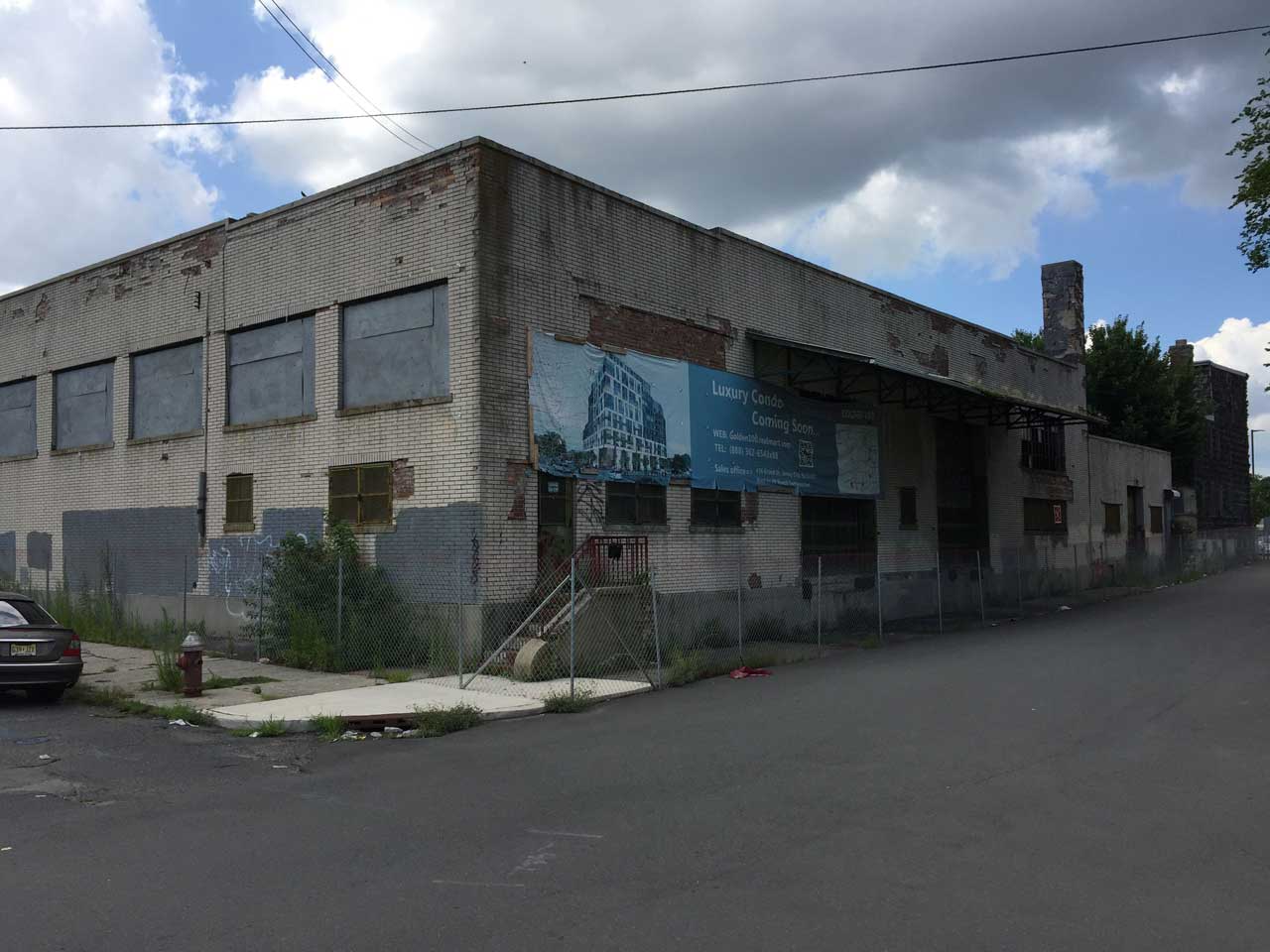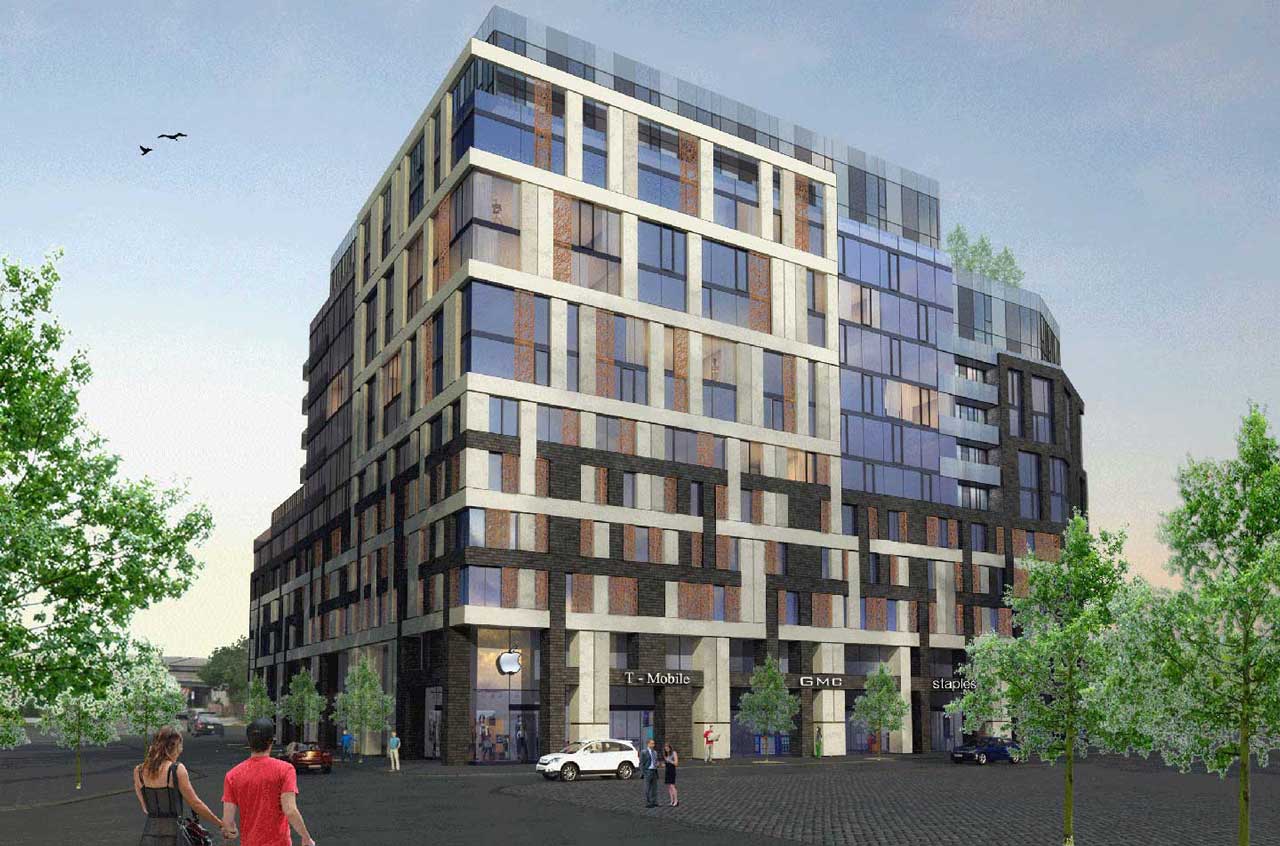
Yet another lawsuit involving Jersey City was filed last week in Hudson County Court, this one by a developer claiming the city is violating their civil rights by refusing to hear changes they’ve submitted to an already-approved project.
The case, filed February 11, will pit Pegasus Enterprises against the city, their planning board, two planners, and the Jersey City Municipal Utilities Authority (JCMUA). Pegasus is the company behind an approved 12-story, mixed-use structure at 100 Colden Street that includes 128 apartments, 168 parking spaces, a 28,650-square-foot retail component, and over 43,000 square feet of self-storage space.

The process to gain approvals was a long one for Pegasus. Way back in October 2015, the company submitted a request to the city looking to amend the Bates Street Redevelopment Plan, which the property falls within. The requested changes, related to the allowance of the self-storage component of the project, were eventually approved in September 2016. Later that month, Pegasus submitted official plans for the site and won approvals from the planning board in January 2017.
Despite the green light, Pegasus says in their complaint that the Jersey City Redevelopment Agency (JCRA) started negotiating with a third party to redevelop the 100 Colden Street lots and adopted a resolution in November 2017 that designated a company called Bates Street Redevelopment LLC as redeveloper. One problem: The redevelopment plan in place protected property owners like Pegasus who own contiguous lots of at least 15,000 square feet from having their land seized for that purpose.
In April 2018, Pegasus says they submitted an amended site plan for the development that added one unit and made other minor changes. Just a month later, the city’s planning board announced they were considering removing language in the redevelopment plan that protected Pegasus from having their land seized by the city for redevelopment. It was around this time, according to the lawsuit, that the city first informed Pegasus that they lacked standing to submit their site plan to the board, as they weren’t designated a redeveloper.

After the effort to amend the redevelopment plan was killed following an outcry and a separate legal challenge from Mecca Properties, Pegasus says they resubmitted their plans to the city in November. They claim officials wrote back to them on New Year’s Eve again saying they lacked standing to submit the plans, which the company argues is “contrary to the express language of the Redevelopment Plan, and practices throughout the City.”
In addition to the planning board issues, Pegasus claims that the JCMUA has suspended their review of an application they submitted in September last year that would connect sewer and water service to the property. The company says that the combined actions of both entities have caused an “inverse condemnation” of their property and have “destroyed any economically viable use” of the land.
“Numerous land use applications within redevelopment areas have received approvals without redeveloper designation and/or the execution of a redevelopment agreement,” the lawsuit notes.

Pegasus says the lack of action from both agencies on their submissions violates their right to procedural due process under the 14th Amendment of the U.S. Constitution. The company is seeking a declaration from the court that their applications to the planning board and JCMUA are both complete. Jersey City has declined comment on the lawsuit, citing their policy on pending court proceedings.
The city’s legal department has gotten quite a bit of work over the last few months. Since September, HAP Investments has sued over alleged stalling at their 500 Summit Avenue project, several businesses have challenged the city’s payroll tax, The Village Neighborhood Association is attempting to overturn development approvals at 141 Brunswick Street, and a Communipaw Avenue gas station has filed suit looking to void the newly-created West Side Avenue Special Improvement District.
Related coverage:
- Developer Sues Jersey City for Right to Develop His Own Property
- JCRA Wants to Buy Vacant Center Street Properties in Jersey City
- 100 Colden Street Will Bring Revitalization to Downtown’s Fringes


